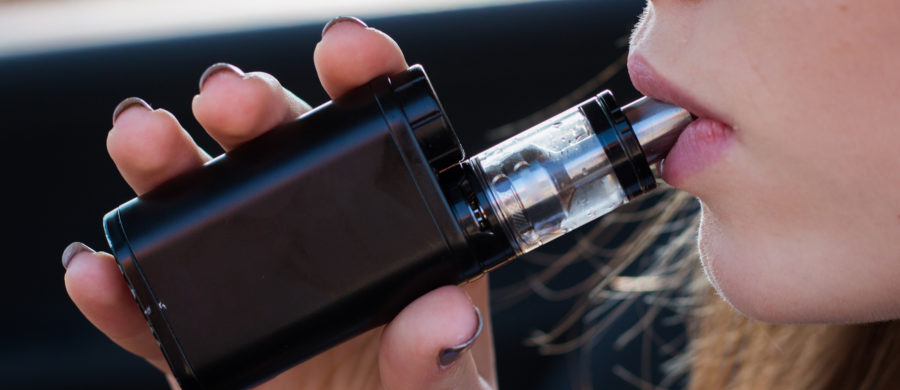According to the 2018 National Youth Tobacco Survey, conducted by the FDA and the Centers for Disease Control and Prevention, vaping increased 78 percent among high school students since the last year (2017) and almost 48 percent among middle school youth. On a local level, the Health Kids Colorado Survey conducted in 2017 found that 36 percent of teens in Boulder County currently use e-cigarettes. This is the second highest usage rate in the state and is significantly higher than the state average of 27 percent.
The Centers for Disease Control are also investigating 6 deaths and over 450 reported cases of severe lung illness linked to vaping from U.S. residents of all ages.
Boulder Medical Center providers have been working locally to inform the community about the dangers of vaping. Recently, several providers from the Family Medicine department spoke in support of Boulder City Council plans to ban the sale of flavored nicotine products like JUUL pods and raise the legal age to purchase tobacco to 21. The city will also ask voters on the November ballot to approve a 40% sales tax on e-cigarette products.
Here is the testimony presented to the council in August:
Dear Boulder City Council,
We routinely encounter teenagers and youth who are using vape products aka electronic nicotine delivery systems (ENDS). Boulder teens find the ENDS slick, physically and financially accessible, and status boosting. Due to their low physical profile, many parents and teachers discover the issue only after their children are addicted. The flavorings make the products tempting and smooth, and the high nicotine dose makes it difficult to quit in those who wish.
Although ENDs have been marketed as ways to stop smoking combustible tobacco products, evidence based guidelines do not recommend their use, as there are safer and more effective methods to help smokers quit.
The exhaled vaping fumes have been shown to contain nicotine, heavy metals, acetone, formaldehyde, volatile organic compounds, and ultra fine particles. These substances negatively impact indoor air quality, which affects not only the people using the products, but also those sharing the space via “second hand smoke”.
At the Boulder City Council Meeting on August 13, many smoke shops spoke about the potential financial impact once the flavor ban goes into effect. As health care professionals and Boulder County citizens, we feel it is unconscionable to sell products particularly appealing to our youth that have been shown to be detrimental to physical, cognitive and mental health. Even though it would be financially beneficial for manufacturers to pipe their waste directly into our streams and lakes, it is unlawful, because our government understands that the long view of public health is more important than short term business profits.
Due to the known and unknown health consequences of ENDS, we strongly urge the City Council to not only raise the age of access to 21, but also to ban all flavorings including mint and menthol (the most popular flavors for youth), to help stem the use and abuse of these products.
Sincerely,
The Boulder Medical Center Family Medicine Department
Karin Susskind, MD
Jill Siegfried, MD
Eileen Gallagher, MD
Rebecca Juliar, MD
Robyn Nordstrom Lane, MD
John Kelley, MD

